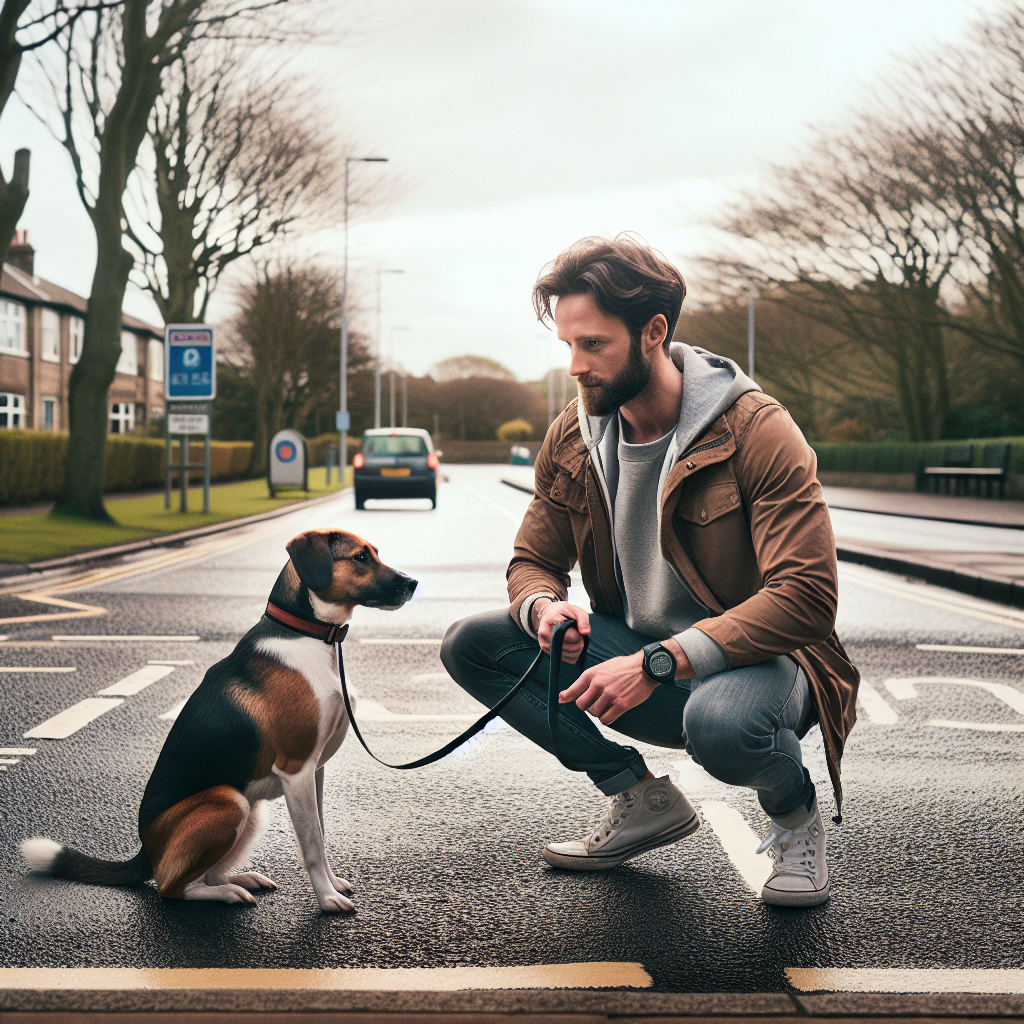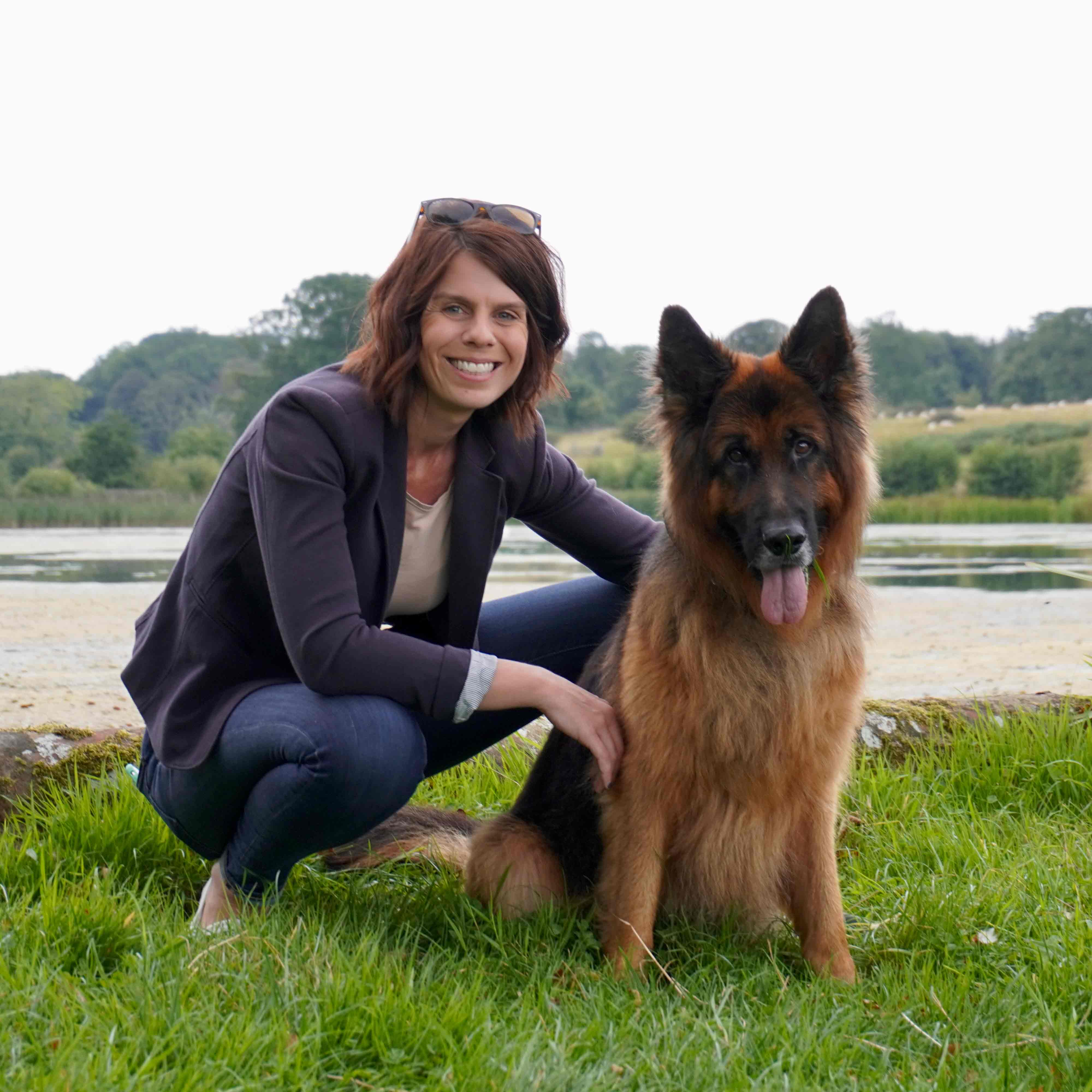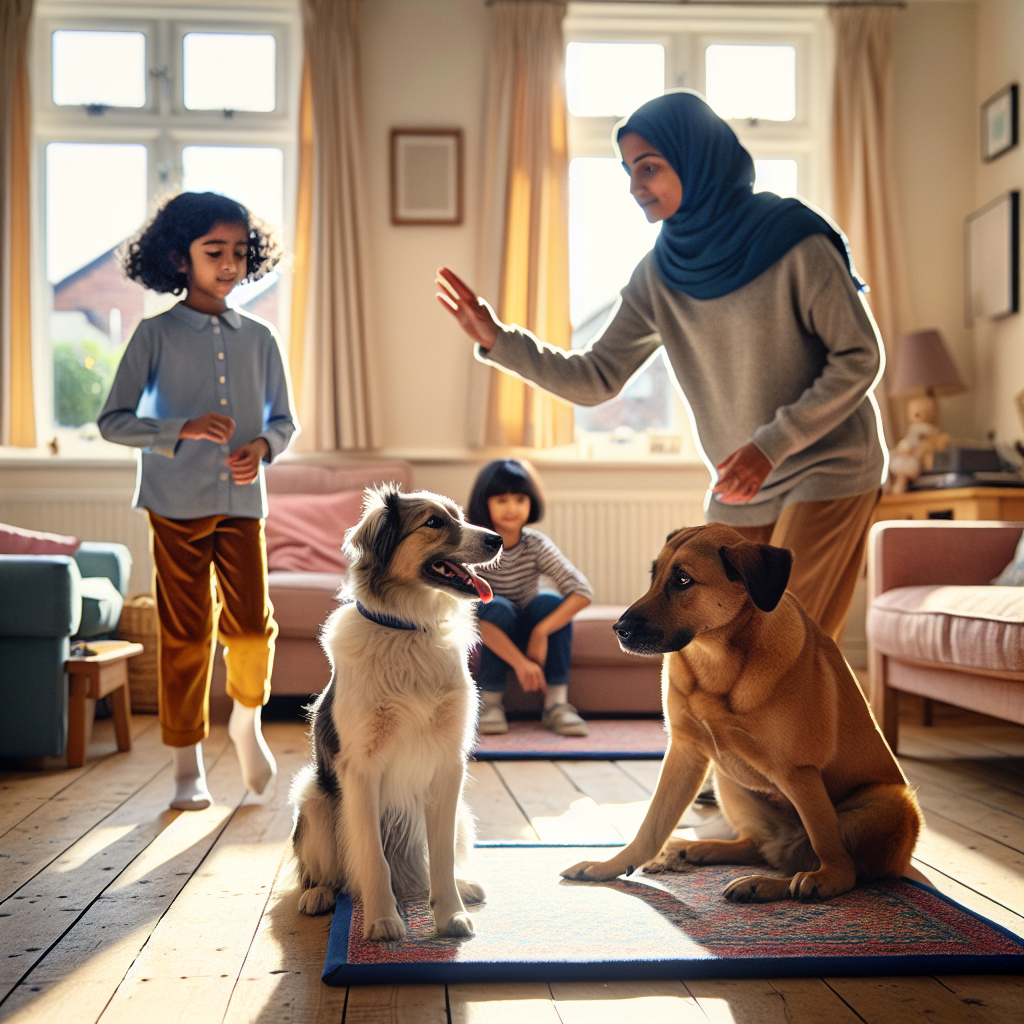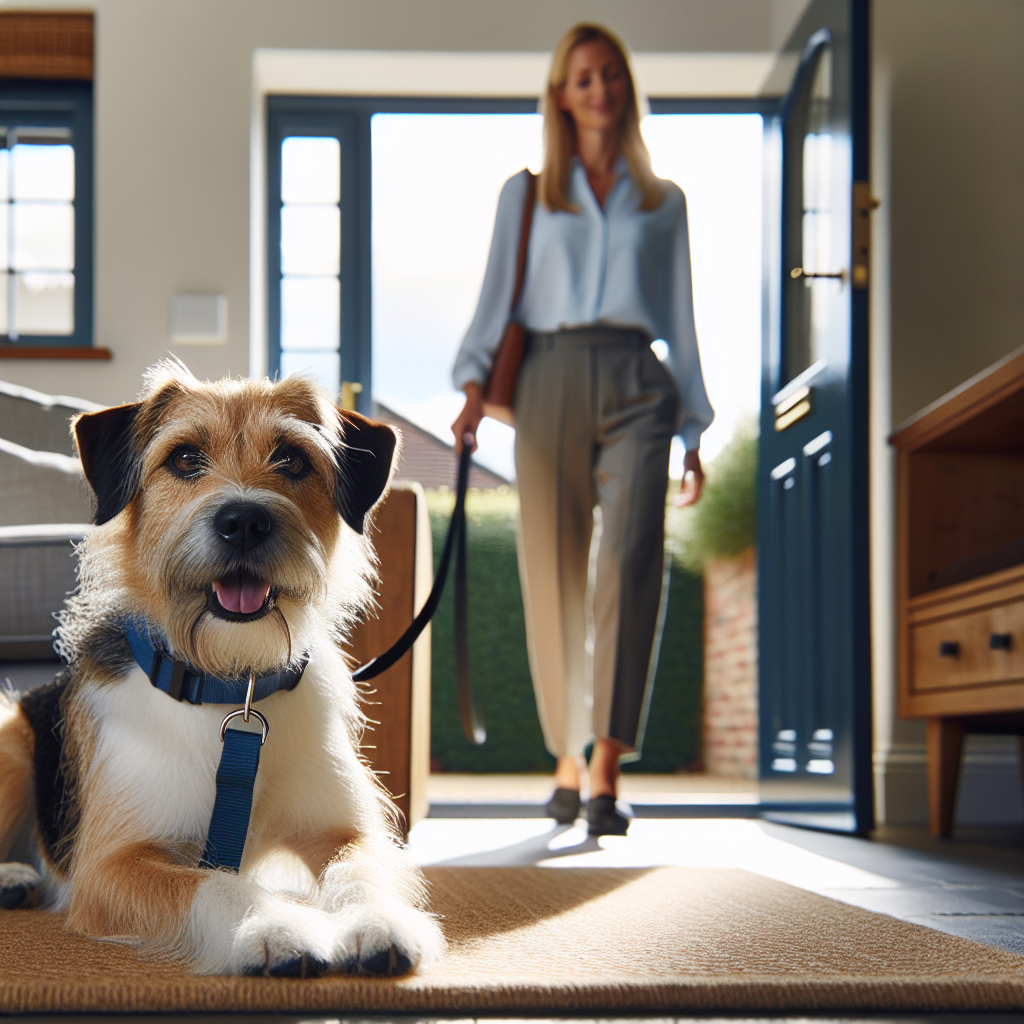Why Dogs Don’t Generalise Well

Understanding Why Dogs Don’t Generalise Well
If you have ever wondered why your dog sits brilliantly at home but seems to forget everything at the park, you are not alone. Many owners ask why dogs don’t generalise well and how to fix it. The answer sits at the heart of how dogs learn. Dogs are highly context driven. They attach meaning to cues based on the place, the handler, the equipment, the scent in the air, and even the direction you are facing. At Smart Dog Training, we expect this. Our programmes use the Smart Method to translate skills from the kitchen to the pavement to the busiest high street. With a certified Smart Master Dog Trainer (SMDT) guiding you, reliable behaviour is not only possible, it is predictable.
This article explains why dogs don’t generalise well, how to spot the pattern, and how to build rock solid obedience that works anywhere. We will unpack the learning science in plain language, then show step by step how the Smart Method turns context bound behaviours into calm, consistent responses in real life.
What Generalisation Means in Dog Learning
Generalisation is the ability to perform a learned behaviour across different settings. When a dog learns to sit in the kitchen, true generalisation means he will sit in the lounge, at the front door, in the garden, on the pavement, and at the busy park. It also means he will sit for different handlers, on different surfaces, and with different sights and sounds around him.
Humans tend to generalise quickly. Once we learn to open one door, we can open almost any door. Dogs are different. They are masters of pattern recognition and context specificity. A dog learns that sit means lower your bottom to the floor when Mum stands by the fridge with a treat in hand. Change any part of that picture and your dog may not recognise the cue. That is why dogs don’t generalise well without a training plan that teaches them how.
The Science Behind Context Specific Behaviour
Dogs form associations through repetition and reinforcement. The cue, the environment, and the reward history combine to create a picture. That picture becomes the behaviour. When the picture changes, many dogs act as if the behaviour is new. This is not stubbornness. It is learning specificity. Your dog is not being difficult. He is waiting for clarity.
Why Context Matters So Much
- Sensory overload changes priorities. New scents, people, dogs, and traffic compete with you for attention.
- Surfaces and positions alter the feel of movement. Sitting on wet grass is different from sitting on kitchen tile.
- Handler posture cues behaviour. If you usually bend forward, standing tall may confuse the dog.
- Equipment signals meaning. Wearing a lead or long line can change expectations for some dogs.
Understanding these factors explains why dogs don’t generalise well without planned exposure. It also explains why our Smart Method focuses on clarity, motivation, and fair guidance so dogs can succeed step by step.
Everyday Signs Your Dog Has Not Generalised
- Your dog sits indoors but not at the curb.
- He heels well in your cul-de-sac but pulls on a new route.
- Recall works in the garden but stalls at the park entrance.
- Place is solid on the bed but breaks during a delivery.
- Down is easy at training class but fails on damp ground.
If you recognise any of these, you are seeing the normal limits of generalisation. The fix is training that respects how dogs learn and guides them through new contexts with structure.
Why Dogs Don’t Generalise Well Across Locations
The simple reason why dogs don’t generalise well is that dogs connect cues to the picture that was present when they learned. New pictures feel like new tasks. Without a plan that layers distraction, duration, and distance, most dogs will falter. The Smart Method solves this by presenting one new variable at a time while protecting clarity. We never expect reliability in a new place until we have built a foundation and rehearsed success in similar situations.
The Smart Method For Reliable Behaviour Anywhere
At Smart Dog Training, all programmes follow the Smart Method. This structured system balances clarity, motivation, and accountability so your dog learns faster and remembers longer. It is how we overcome the limits that make owners ask why dogs don’t generalise well.
Clarity
We teach crisp commands and marker signals so your dog knows exactly when he is right. The cue, the hand signal, and the release are consistent. Clear guidance removes guesswork and speeds up learning across places.
Pressure and Release
Fair guidance paired with a clear release helps a dog take responsibility without conflict. Light lead pressure shows the path. Release marks the choice. This builds accountability and resilience when the environment changes.
Motivation
We use rewards that your dog cares about. Food, play, praise, and life rewards are layered to create a positive emotional response. A motivated dog engages even when the picture shifts.
Progression
Skills are layered step by step. We change one variable at a time and only when the previous step is fluent. Distraction, duration, and distance are added gradually until the behaviour is reliable anywhere.
Trust
Training strengthens the bond between dog and owner. Trust keeps a dog willing and calm under pressure, which is essential for generalisation.
A Step By Step Plan To Teach Generalisation
Below is a simple, structured progression that reflects the Smart Method and answers why dogs don’t generalise well by teaching them how to succeed in new contexts.
Stage 1 Home Base
- Pick one cue such as sit. Teach with high clarity and clean markers.
- Reward placement matters. Deliver close to position to reduce fidgeting.
- Build short duration. Add a one second pause before release.
Stage 2 Room To Room
- Repeat the same exercise in different rooms. Keep distractions low.
- Keep your cue mechanics the same. No extra words or movements.
- Reward each success to protect confidence.
Stage 3 Garden and Driveway
- Move outdoors where sights and scents increase.
- Use a lead for safety and clarity. Light guidance then release.
- Short sets work best. Two to three minutes, then reset.
Stage 4 Quiet Street
- Train near your home on a quiet path.
- Lower your criteria at first. Ask for short duration sits.
- Reward frequently, then fade the rate as your dog settles.
Stage 5 Busy Environments
- Introduce parks, shops entrances, and vet car parks.
- Change only one element at a time. New place but same short duration.
- Build to longer duration and mild distractions, then add more challenge.
Layering the Three Ds
For every behaviour, progress one variable while holding the others steady:
- Distraction Increase challenge gradually such as people at a distance, mild movement, then dogs passing.
- Duration Add seconds slowly. Ten short wins beat one long failure.
- Distance Change your position after duration is stable.
Generalising Handlers and Equipment
- Have another family member give the cue once the dog is fluent with you.
- Practice with and without a lead. Introduce a long line for recall proofing.
- Switch surfaces such as grass, gravel, and indoor mats.
This progression shows your dog what to do when the picture changes. It is the practical answer to why dogs don’t generalise well.
Tools That Support Clarity
Tools do not replace training. They make clarity easier to achieve. In Smart programmes we select equipment that supports the skill being taught and the stage of progression.
- Lead and long line Offer guidance and safety during early proofing.
- Place bed Provides a clear target for boundaries and calm duration.
- Treat pouch and toy Keep rewards fast and consistent to maintain motivation.
- Markers and releases Yes, Good, and Free create precise communication.
These tools help you solve why dogs don’t generalise well because they keep information clean while you change the environment.
Common Mistakes That Block Generalisation
- Jumping too fast Asking for the final picture in a brand new place.
- Muddy cues Changing words, tone, or hand signals across sessions.
- Over talking Adding chatter that becomes background noise.
- Reward drift Letting reinforcement fade before the behaviour is stable.
- No release Forgetting to tell the dog he is free to move.
- Inconsistent rules Allowing pulling sometimes and forbidding it other times.
When owners ask why dogs don’t generalise well, these mistakes are usually part of the answer. The Smart Method removes these blockers with structure and consistency.
Generalising For Puppies
Early training sets the tone for life. Puppies absorb patterns quickly, but they still face the same limits. To help a puppy generalise:
- Keep sessions short and upbeat. One to three minutes is enough.
- Use simple markers and clear release.
- Rotate locations daily. Kitchen in the morning, hallway at lunch, garden in the evening.
- Plan controlled field trips. Watch the world at a distance, then move closer as confidence grows.
These steps teach a young dog that cues always mean the same thing. That is the clearest fix for why dogs don’t generalise well as they grow.
Generalisation For Reactivity and Behaviour Issues
Dogs with reactivity, fear, or frustration need even more structure. Their emotions compete with learning, which is another layer in the question of why dogs don’t generalise well. Smart behaviour programmes combine obedience with tailored exposure, so the dog can think and choose correct responses in real life.
- Start at a working distance where your dog can focus and breathe.
- Use fair guidance with pressure and release to help your dog make good choices.
- Reward calm, neutral behaviour often. Reinforce disengagement and attention to the handler.
- Progress gradually. Never add distance, duration, and distraction at the same time.
This is where our mentorship and coaching matter. A certified Smart Master Dog Trainer (SMDT) will map your dog’s thresholds, set the right progression, and keep sessions productive.
Measuring Progress So Reliability Sticks
To move from one stage to the next, look for these markers:
- Success rate above 80 percent in the current context.
- Short latency between cue and response.
- Calm body language through the set such as soft eyes and steady breathing.
- Recovery after a startle or unexpected event.
If any marker drops, step back one level. This protects clarity and prevents rehearsing failure. It also keeps the process enjoyable which is vital when owners ask why dogs don’t generalise well and how long it takes to fix.
Ready to turn your dog’s behaviour around? Book a Free Assessment and connect with a certified Smart Master Dog Trainer - available across the UK.
Putting It All Together In Real Life
Imagine your dog sits perfectly at home but stalls at the kerb. You follow the Smart progression. You practice sit with a lead on the driveway, then at the kerb during quiet times, then with a neighbour walking by, then with a cyclist passing, then on a busier street. You keep cues consistent, use light guidance and release, and reward generously at first. Within days your dog learns that sit means sit everywhere. You solved why dogs don’t generalise well by teaching through contexts with structure.
When To Work With A Professional
If your dog struggles with anxiety, reactivity, or poor impulse control, do not wait. These cases benefit from tailored coaching. A Smart trainer will design the right steps, prevent overwhelm, and keep you accountable. The fastest path to reliability is a clear plan and expert eyes on the details.
To get matched with a local expert, use our national network of certified trainers. Find a Trainer Near You and start a programme that delivers results in real life.
FAQs
Why do dogs forget cues in new places?
They do not forget. They are reading a new picture and waiting for clarity. This is the core of why dogs don’t generalise well. You need a plan that changes one variable at a time and rewards success.
How long does it take to generalise a behaviour?
Basic cues often generalise in two to four weeks with daily practice. Complex behaviours or behaviour issues take longer. The Smart Method keeps progress steady by controlling distraction, duration, and distance.
Can I fix this without using food?
Yes. We mix food, play, praise, and life rewards. Motivation keeps engagement high. We also use fair pressure and release for clarity and accountability, then release and reward when your dog makes the right choice.
My dog listens to me but not my partner. Why?
Handler generalisation has not happened yet. Your dog has linked the cue to you and your style. Practice the same routine with your partner using identical cues, markers, and release. Start in easy places and progress gradually.
What is the difference between proofing and generalisation?
Generalisation is performing a behaviour in new contexts. Proofing is stress testing that behaviour under distraction, distance, and duration. Both are built into Smart programmes so you are not left asking why dogs don’t generalise well after class.
Is my dog being stubborn?
Stubborn is rarely the issue. Lack of clarity and overfacing are the usual culprits. With the Smart Method, you remove confusion and raise criteria carefully so your dog can succeed anywhere.
Do I need professional help for reactivity?
Reactivity adds emotional layers that can slow generalisation. Professional coaching keeps exposure safe and productive. A Smart Master Dog Trainer will map the right distances, guide timing, and track progress.
How often should I train to improve generalisation?
Short daily sessions beat long weekend marathons. Aim for three to five mini sessions a day in varied locations. Keep each set focused and end on a win.
Conclusion
Now you know why dogs don’t generalise well and how to change it. Dogs learn in pictures. When the picture changes, the behaviour must be retaught with structure. The Smart Method delivers that structure with clarity, motivation, fair guidance, and careful progression. Start at home, move room to room, then step outside. Change one variable at a time. Reward success and keep cues consistent. If you want results faster or you are facing behaviour challenges, partner with a certified professional.
Your dog deserves training that truly works. With certified Smart Master Dog Trainers (SMDTs) nationwide, you'll get proven results backed by the UK's most trusted dog training network. Find a Trainer Near You



